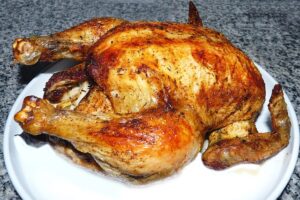Introduction
Protein shakes have become a popular choice among fitness enthusiasts and athletes as a convenient way to meet their protein requirements. However, some individuals may experience gas or bloating after consuming protein shakes. In this article, we will explore various strategies to prevent gas from protein shakes and ensure a comfortable digestion process.
Choosing the Right Protein Powder
Quality Matters: Opt for high-quality protein powders that are known for their purity and minimal additives. Cheaper protein powders may contain fillers and artificial ingredients that can cause digestive discomfort.
Avoid Lactose: If you are lactose intolerant, choose protein powders that are lactose-free or made from alternative sources such as pea, hemp, or rice protein. Lactose intolerance can lead to gas and bloating in some individuals.
Managing Portion Sizes
Start with Small Amounts: If you are new to protein shakes, start with smaller portions and gradually increase the serving size. This allows your body to adjust to the protein intake and minimizes the chances of experiencing gas.
Follow Recommended Dosages: Stick to the recommended dosage mentioned on the protein powder packaging. Excessive protein intake can overwhelm your digestive system and lead to gas and bloating.
Proper Mixing Techniques
Avoid Shaking Vigorously: When preparing your protein shake, avoid shaking the mixture vigorously. This can introduce excess air bubbles, which can contribute to gas formation. Instead, gently stir or use a blender on a low setting to mix the powder with liquid.
Allow Bubbles to Settle: After mixing your protein shake, let it sit for a few minutes to allow any air bubbles to settle. This can help minimize the amount of air you consume while drinking the shake.
Slow and Mindful Consumption
Sip, Don’t Chug: Instead of quickly chugging your protein shake, take small sips and allow your body to digest it gradually. Drinking too quickly can lead to swallowing excess air, which can contribute to gas.
Chew Your Protein Shake: While it may sound unusual, chewing your protein shake can aid in the digestion process. Chewing stimulates the production of digestive enzymes in your mouth, which can help break down the protein more efficiently.
Consider Digestive Enzymes
Supplement with Digestive Enzymes: If you frequently experience gas or bloating after consuming protein shakes, you may consider taking digestive enzyme supplements. These enzymes can help break down the protein more effectively, reducing the chances of digestive discomfort.
Conclusion
By choosing the right protein powder, managing portion sizes, employing proper mixing techniques, consuming protein shakes mindfully, and considering digestive enzymes, you can prevent gas and bloating associated with protein shakes. Experiment with these strategies to find what works best for your body and enjoy the benefits of protein shakes without any digestive discomfort.
References
1. Mayo Clinic: www.mayoclinic.org
2. Healthline: www.healthline.com
3. WebMD: www.webmd.com











